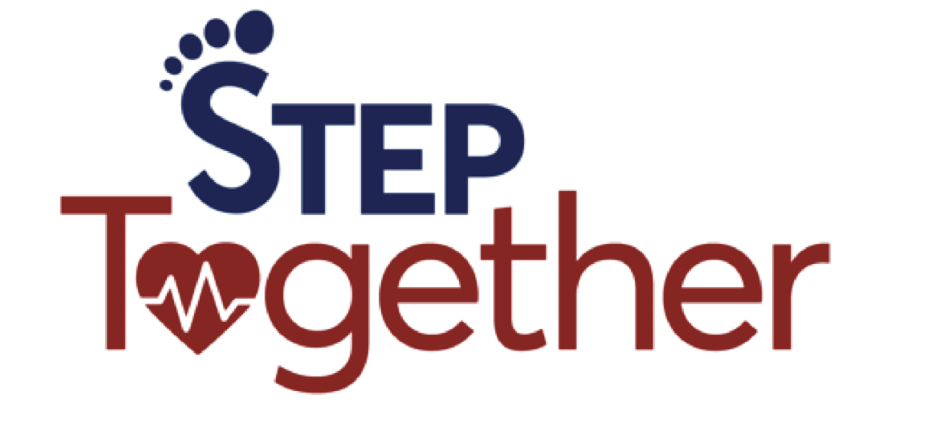Research

STEP Together: A Hybrid Type 1 Effectiveness-Implementation Study of Social Incentives Strategies to Increase Physical Activity
This study uses a Hybrid Type 1 effectiveness-implementation design to adapt and test the effectiveness of two successful social incentive-based interventions, a gamification strategy and financial incentives donated to charity on the participants’ behalf, to increase physical activity among 225 low-income, mostly minority families in community settings.
Funded by the National Institutes of Health/National Heart, Lung, and Blood Institute
Grant number: R01-HL152430
PUBLICATIONS:

Healthy Weigh Study – Core Research Project
Research has shown that losing weight can improve risk factors and reduce the occurrence of chronic disease. In order to achieve these health outcomes, however, the weight loss has to be maintained; yet, successful strategies for long-term maintenance are lacking. To address this knowledge gap, we conducted a study to compare four different promising strategies to achieve weight loss and maintenance of weight loss in obese employee populations.
Principal Investigators: Kevin Volpp and Karen Glanz
Funding Cycle: 2014-2019
Toolkits:
Tips for Losing Weight and Keeping it Off
Strategies to help manage healthy eating and activity
Using Wireless Scales in Clinical Research
Strategies to connect clinicians and participants

Skin Cancer Communication Project
Effective health communication through media channels can contribute to skin cancer prevention in important ways, especially if the messages are targeted to specific groups. This research assessed the knowledge, attitudes and beliefs of adults aged 18 to 49 years in order to develop effective messages and communication strategies for two categories of skin cancer risk behaviors: indoor tanning and outdoor sun exposure. The messages were aimed at females aged 18-25 who frequently indoor tan, as well as all adults ages 18-49 who are exposed to the sun outdoors.
Principal Investigators: Karen Glanz and Amy Jordan
Funding Cycle: 2014-2019
Toolkits:
Reduce UV Exposure to Prevent Skin Cancer – indoor tanning
Insight into why young women indoor tan and tools to help them quit
Reduce UV Exposure to Prevent Skin Cancer – outdoor sun exposure
Tools to promote protection from harmful UV rays and reduce skin cancer risk

Cognitive Aging Communication Project
Cognitive impairment has arrived as a major public health issue in the United States. Approximately 13 million people care for the estimated 5 million people who have Alzheimer’s disease, at a cost of 5 billion per year. In 2005, the CDC launched the Healthy Brain Initiative. As part of this effort, CDC has provided funding to identify key issues related to communicating about cognitive health and Alzheimer’s disease. This project will design and develop prototypes for public health messaging focused on promoting cognitive health-related behaviors, with a focus on African Americans and non-Latino Whites (the most common ethnic groups in the Philadelphia area). To this end, we will:
- Work with our Community Advisory Board, the Healthy Brain Initiative Network, and the CDC’s scientific staff and collaborators to identify opportunities to increase awareness and action, as well as to refine both our target messaging and audiences
- Design and execute a theory-based telephone survey that will identify current knowledge, practices, attitudes, and beliefs related to cognitive health, dementia, and Alzheimer’s disease
- Create culturally-sensitive messages for a targeted audience
- Empirically test the effectiveness of messages created for the target audience
- Disseminate prototypical messages to public health departments and their partners
Principal Investigators: Jason Karlawish and Amy Jordan
Co-investigator: Amy Bleakley
Funding Cycle: 2014-2016

Integrating Self-Management Education with Cancer Survivorship Care
Adolescent and young adult (AYA) survivors of childhood cancer represent a growing and underserved population (1 in 600 young adults is a childhood cancer survivor) at risk for cancer recurrence, second cancers and other chronic health conditions (so-called “late effects”) of cancer treatment despite the vast resources used to cure them. AYA also demonstrate disengagement and loss to follow-up, health-harming behaviors, and deficits in knowledge about their cancer history and future risks. We will test the impact of AYA STEPS (Self-management via Texting, Education, and Plans for Survivorship)–an innovative, technology-based intervention that will provide customized care plans and a tailored mobile health application to enhance survivorship self-management.
Principal Investigators: Christine Hill-Kayser (UPenn) and Lisa Schwartz (CHOP Subcontract)
Co-investigators: Lamia Barakat, Lauren Daniel, Linda Fleisher, Jill Ginsberg, Wendy Hobby, Linda Jacobs, Yimei Li, Dava Szalda
Funding Cycle: 2015-2018

Economic Impact of Clinical Trials Among Children Diagnosed with Cancer
More than 60% of children with cancer under age 15 receive treatment through a therapeutic clinical trial compared to about 5% of those who are older than 20 years. Understanding the costs of treatment associated with clinical trial participation is critical in determining if the effects of treatment justify the costs from a societal perspective, including costs borne by the patient and family. This study will compare the economic impact and health-related quality of life outcomes among children with cancer who were treated on Phase III clinical trials to those who receive non-trial standard treatment. Outcomes evaluated will include survival, direct and indirect costs, and health-related quality of life. Findings will inform decision-making for children with cancer and their families who are considering taking part in therapeutic clinical trials.
Principal Investigators: Marilyn Schapira
Co-investigators: Lamia Barakat, Jeffrey Silber, Charles Bailey
Funding Cycle: 2015-2017

Building Local Community Health Leadership for Action on Preventing Chronic Disease
The overall goal of the Philadelphia Health Leadership Institute (PHLI) is to identify, train, and mentor a cadre of leaders in the Philadelphia Promise Zone (PPZ). Participants in the PHLI will assess their community’s health promotion needs, create action plans to address those needs, and implement a rigorous evaluation plan. The aims of this project are to:
1) Identify and recruit two cohorts of 6-8 leaders each working with the Philadelphia Promise Zone who will commit to a one-year fellowship with the PHLI.
2) Create a curriculum and program for mentorship in Quality Improvement, Leadership, Healthcare Needs Assessment and Program Implementation, and Program Evaluation.
3) Evaluate the impact of the fellowship on learner knowledge, self-efficacy, and behavior, and a tailored population-level health outcome.
4) Disseminate successful components to two additional urban Promise Zones.
Principal Investigators: Frances Barg
Co-investigators: Heather Klusaritz, Peter Cronholm, and Karen Glanz
Research Coordinator: Caroline LaRochelle
Funding Cycle: 2015-2019
Collaborating Research Networks

Cancer Prevention and Control Research Network
The Cancer Prevention and Control Network (CPCRN) is a national network of academic, public health, and community partners who work together to reduce the burden of cancer, especially among those disproportionately affected. The objective of CPCRN is to manage a program of community-based intervention research in cancer prevention and control. We also facilitate dissemination of study tools, methods and findings to regional and national professional and community stakeholders. One of the main mission’s of the network is to address critical gaps in the uptake of evidence-based strategies to increase colorectal cancer screening by conducting implementation research to increase systematic and opportunistic screening for colorectal cancer in primary care settings, especially for disadvantaged and minority adults.
Principal Investigator: Karen Glanz
Co-Investigators: David Grande, Carmen Guerra
Funding Cycle: 2014 – present

Healthy Brain Research Network
The goals of the UPenn Healthy Brain Research Network Collaborating Center were to establish and advance a research agenda in cognitive health and healthy brain aging by supporting doctoral and postdoctoral education and collaborating with the CDC network and its scientific collaborators. With a focus on translation from research to practice to policy, the Healthy Brain Research Network addressed areas critical to public health and healthy aging, with an emphasis on cognitive health and impairment.
Principal Investigator: Jason Karlawish
Research Coordinator: Kristin Harkins
Funding Cycle: 2014 – 2019
